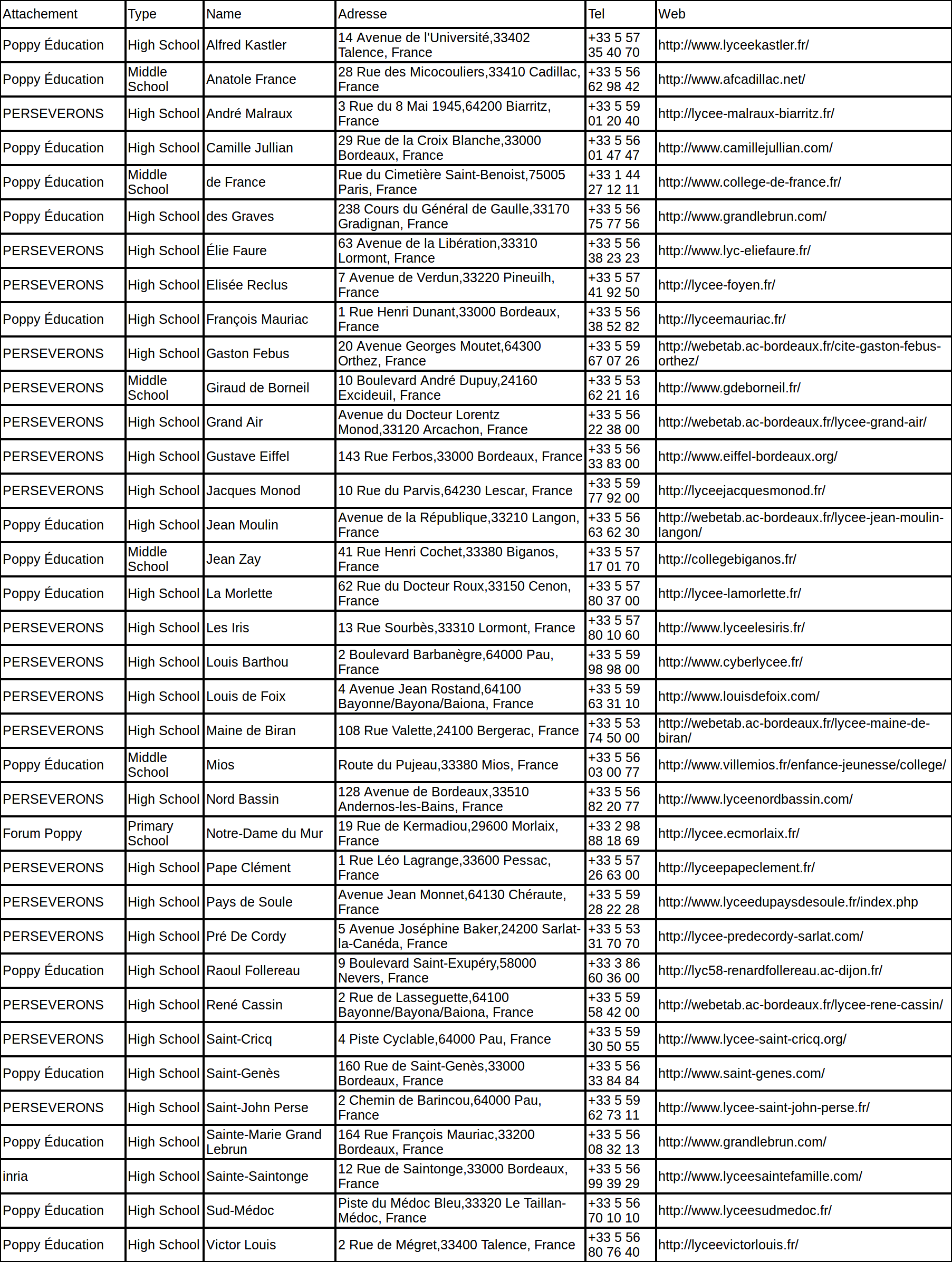Section: Partnerships and Cooperations
Regional Initiatives
Perseverons
The Perseverons project (Perseverance with / by digital objects), coordinated by the university via the ESPE (Higher School of Teaching and Education) of Aquitaine, and by the Rectorat of Bordeaux via the DANE (Academic Delegation digital education), aims to measure the real effectiveness of digital techniques in education to improve school motivation and perseverance, and, in the long term, reduce dropout. The project proposes to analyze the real effects of the use of two types of objects, robots, tablets, by comparing the school and non-school contexts of the fablabs. It is one of the 22 winners http://www.gouvernement.fr/efran-les-22-laureats of the "E-Fran" call for projects (training, research and digital animation spaces), following the Monteil mission on digital education, as part of the Investissement d'Avenir 2 program http://ecolenumerique.education.gouv.fr/2016/09/23/1244/. Formed of 12 sub-projects, "perseverons" has many partnerships, especially with the Poppy Education project of Inria Flowers. It is funding the PhD of Thibault Desprez.
Partner schools
In 2018, we have 36 partner schools (show Fig 41). 15 directly from the Poppy Education project. 19 new establishments were equipped in September 2017 by the Perseverons project. 21 of these establishments are located in Gironde. We have 27 high schools, 5 middle school.
KidLearn and Region Aquitaine
We propose here a research project that aims at elaborating algorithms and software systems to help humans learn efficiently, at school, at home or at work, by adapting and personalizing sequences of learning activities to the particularities of each individual student. This project leverages recent innovative algorithmic models of human learning (curiosity in particular, developed as a result of ERC European project of the Flowers team), and combines it with state-of-the-art optimization algorithms and an original integration with existing expert knowledge (human teachers). Given a knowledge domain and a set of possible learning activities, it will be able to propose the right activity at the right time to maximize learning progress. It can be applied to many learning situations and potential users: children learning basic knowledge in schools and with the support of their teachers, older kids using educational software at home, of adults needing to acquire new skills through professional training (“formation professionnelle”). Because it combines innovations in computational sciences (machine learning and optimization) with theories of human cognition (theories of human learning and of education), this project is also implementing a strong cross-fertilization between technology and human sciences (SHS).



